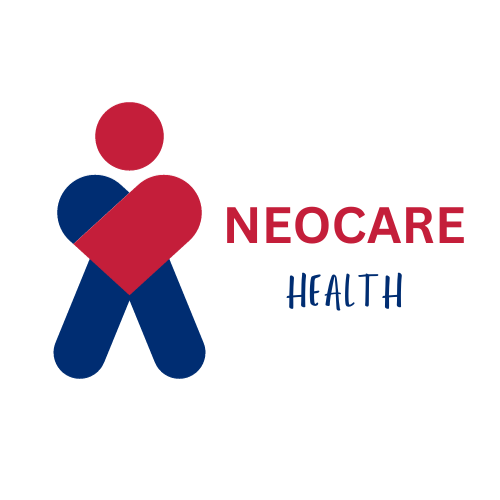Exploring the Challenges of Caring for Fragile Newborns: Insights from Neonatal Nurses
Guiding through the intricate area of neonatal nursing care, neonatal nurses bear a weighty responsibility that surpasses conventional healthcare duties. Tasked with tending to the most vulnerable patients—premature infants, or those grappling with illness or congenital conditions—these professionals operate within Neonatal Intensive Care Units (NICUs) and various other healthcare settings. The role of a neonatal nurse is an intricate tapestry of medical management, vigilant observation, and the provision of solace, made possible by the collective effort of neonatologists, nurses, therapists, and consultants forming a resilient multidisciplinary team. As demands for such specialised care skyrocket, the field offers strong job stability, and for those with a passion for neonatal care, an opportunity for growth through additional training and certification.
The fulfilment of the role by these extraordinary nurses hinges on a suite of crucial skills, ranging from an in-depth knowledge of neonatal care to critical thinking and effective communication. Coupled with relentless empathy and cultural competence, neonatal nursing care embodies a blend of science and tender compassion. Entering this noble profession requires a robust educational foundation, licensure, and targeted certifications—a relentless pursuit of excellence that epitomises the essence of this valued vocation. As we unfold the layers of challenges and strategies within this arena, this article offers a mirror into the complex world of neonatal care, aiming to enlighten and support those committed to ensuring the well-being of our tiniest warriors and their families.
The Multi-Dimensional Challenges in Neonatal Care
The multidimensional challenges in neonatal care are as multifaceted as they are critical. Insights from a group of 46 mothers in a Level III NICU in the Midwestern United States reveal several key stressors and highlights that can shape the NICU experience:
Communication and Bedside Manner: The quality and frequency of communication with medical staff are pivotal. Good communication is shown to have a positive impact, serving as a source of reassurance, while inconsistency or neglect in this area exacerbates stress. Similarly, the bedside manner of medical staff plays a significant role. Respectful and caring attitudes from staff can have a calming effect, whereas rudeness and a lack of consideration can contribute to a negative experience for the families involved.
Parental Involvement: Mothers often report feelings of alienation when they perceive themselves as excluded from the care of their infants, intensifying the emotional toll on them. Conversely, enabling parents to be more involved in the neonatal nursing care process and welcoming their presence can significantly mitigate these feelings of exclusion.
Peer Support and Environmental Factors: The support from other NICU mothers and families often acts as a crucial buffer against stress, promoting a shared understanding and a sense of community. Additionally, the NICU's physical environment and regulations can either be stressors, with a strict and clinical atmosphere, or highlights, where a warm and supportive setting is cultivated.
In the broader scope, medical staff at Tehran University of Medical Sciences have identified neonatal care challenges including:
Interactions and Rights: Ensuring patients' rights are met, and developing a healthy interaction with parents that balances professionalism with empathy and understanding is a fundamental challenge.
Communication and Cooperation: Effective communication and cooperation among the multidisciplinary teams are imperative and must be maintained to provide optimal care.
End-of-Life Considerations: Navigating the complex ethical terrain of end-of-life care is also a central challenge, as it often involves making deeply impactful decisions under distressing circumstances.
Research involving neonatal health experts in low-resource settings sheds light on several obstacles:
Resource Constraints: Scarce physical resources and limited human resources underscore the critical need for more investment in infrastructure and workforce.
Training and Leadership: The gap in education and specialist neonatal training is conspicuous, further amplified by weak leadership across community, local, and national spheres.
Documentation and Standards: Poor communication within clinical teams, coupled with limited documentation and a lack of standardised guidelines, complicate the delivery of uniform and high-quality neonatal care.
Adding to these dimensions is the prevalence of moral distress among NICU staff; decisions about medical futility, periviable resuscitation, and end-of-life care can create profound professional and personal conflicts. Addressing these issues necessitates a nurturing work environment and access to support for the nurses.
In contrast, a five-year plan for maternity and neonatal services in Scotland seeks to improve neonatal care standards by focusing on a family-centred care model. Central to this model is the proximity and involvement of parents in the decision-making process, alongside ensuring neonatal nursing care is administered by properly trained staff, minimising unnecessary infant transfers, and maintaining the highest care standards.
These insights underscored the stark reality of the complex, intertwining challenges faced by those providing and receiving neonatal care, guiding the ongoing enhancement of neonatal nursing care practices.
Strategies and Support Systems for Overcoming Challenges
In the complex realm of neonatal nursing care, the utilisation of Clinical Decision Support Systems (CDSS) emerges as a beacon of innovation, designed to aid healthcare practitioners in making informed decisions. These systems integrate clinical and patient data, providing computer-based support that has proven beneficial in adult patient care through various applications, from diagnostic assistance to therapy planning. While their potential in neonatal care is promising, the reality reveals that research in this domain is still in its infancy, with only a handful of randomised controlled trials yielding a mixed bag of results:
A study by Cade (1997) showed no significant effect of CDSS on short-term neonatal outcomes, while Balaguer (2001) observed a notable decrease in drug prescription errors and time spent on calculations.
Research by Cunningham (1998) investigated computer-aided physiological monitoring and found no significant changes in mortality rates or severe intraventricular haemorrhage, signifying the need for further extensive studies.
Owing to the scarcity of conclusive data, the impact of CDSS on neonatal medicine calls for additional exploration through randomised controlled trials to ascertain its efficacy.
Amidst the backdrop of these technological advances, NICU clinicians confront day-to-day hurdles ranging from staffing shortages to ensuring consistent quality care with limited access to cutting-edge clinical technology. Responding to these challenges, entities like Wolters Kluwer have stepped forth offering solutions such as UpToDate and Lexicomp, which:
Provide clinicians with timely access to current clinical information and drug references, directly impacting the quality of neonatal care.
Facilitate clear communication within NICU teams to ease the sharing of vital data.
Offer frameworks for standardising care processes, leading toward more uniform care delivery and outcomes.
Enhancing the synergy between doctors and registered nurses in NICUs is another pivotal strategy which hinges not just on continuous communication, but also on fostering a culture of positive attitudes, peer support, and effective management. Elevating the competencies of NICU staff involves an array of educational interventions:
Peer-led seminars and workshops, alongside in-service training programmes, broaden the skills and knowledge base, reinforcing the nurses’ ability to administer neonatal care.
Ensuring an adequately resourced work environment spearheads improvements in neonatal care outcomes and mitigates work-related stresses such as burnout and decreased morale amongst nurses.
Neonatal Intensive Care Units and Special Care Nurseries stand as specialised sanctuaries catering to the multifaceted needs of ailing or prematurely born newborns. To complement the clinical care, the role of parental visits and community support groups is indispensable in buoying the spirits and fortifying the resolve of the families affected. Further to the technicalities of infection control and nutritional considerations, whether through breastfeeding or artificial feeding, lies a layered system of neonatal care such as that in Victoria, Australia. This system is typified by an intricate interplay between six diverse levels of care and a quartet of tertiary statewide neonatal services, embodying comprehensive and bespoke care strategies that are tailor-made to suit the vulnerable clientele they serve.
Conclusion
In conclusion, this article meticulously examined the layered complexities of neonatal nursing care, delving into the myriad of challenges faced by healthcare professionals and the impactful strategies for overcoming these hurdles. From ensuring empathetic communication and parental involvement to the implementation of Clinical Decision Support Systems and the importance of resource allocation, the core tenets of the article reveal a profound dedication to improving the neonatal experience for newborns and their families. The commitment of neonatal nurses to provide exceptional care, underpinned by robust education and enhanced support systems, stands as a testament to the relentless pursuit of excellence within this vital sector of healthcare.
s
As we reflect on the discussed themes, it is clear that the implications of delivering high-quality neonatal care are extensive, touching not just the lives of these fragile patients but also shaping the healthcare landscape as a whole. The convergence of advanced technology, comprehensive training, and a compassionate approach paves the way for more effective and humane care delivery. To continue this noble endeavour, further research and cooperative efforts across the multidisciplinary teams are essential to enrich the field and foster an environment where our smallest patients receive the best start in life. It is with this understanding and hope that we draw this article to a close, acknowledging the ongoing journey to refine and enhance neonatal care.










